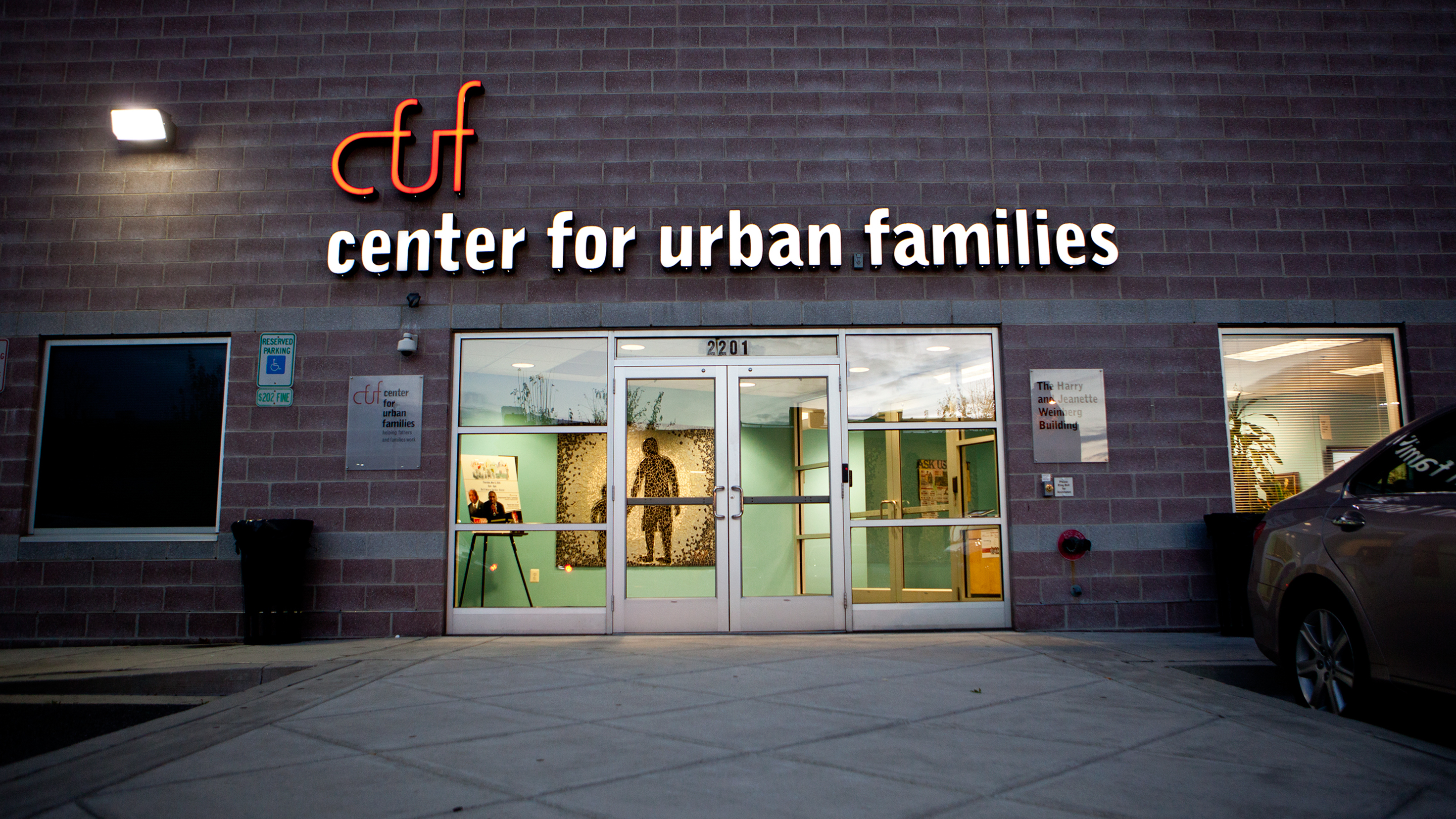Center for Urban Families

The Center for Urban Families in Baltimore (shown here on Nov. 11) is a nonprofit that provides job training, parenting programs and other help for low-income families.
Utilizing its 2017 FY17 Clean Energy Communities Lowto-Moderate Income Grant Program (LMI) award, Healthy Neighborhoods, Inc. (HNI) was able to upgrade
The Center for Urban Families (CFUF) to be more energy efficient. CFUF, established in 1999, is a nonprofit organization located in Baltimore City with a mission to “strengthen urban communities by helping fathers and families achieve stability and economic success” through a wide range of programs.
As the space required to run CFUF’s programs continues to expand, so does its energy consumption. Annual electricity usage for the Community Center totaled a surprisingly high 551,554 kWh which showed room for energy savings opportunities. Building energy analysis performed by HNI with the assistance of the Baltimore City Department of Public Works Office of Sustainable
Energy identified inefficiencies with control logic for the electric reheat system, which warms up air which has been cooled for the purpose of space cooling and de-humidification. As the cooled and dehumidified air from the central HVAC system is delivered to each zone in the building, it is warmed up by the electric reheat system to the extent needed to prevent overcooling in a given zone. The reheat system and its control settings could only be accessed manually via a wall-mounted apparatus, and the zone settings were kept at a fixed air flow and
temperature setpoint during operating hours, even in unoccupied rooms. Additionally, while the CFUF community center was built just 9 years ago, there were also cost-effective opportunities to increase air sealing and insulation between the wall and ceiling that would decrease the electricity required to cool or heat the building. Finally, energy intensive light fixtures remained on throughout the building, including rooms that were not in use. This presented another savings opportunity.
HNI directed its $111,180 grant from the Maryland Energy Administration’s LMI program to address the inefficiencies at the CFUF Community Center building. The electric reheat control settings were optimized by installing occupancy sensors to monitor for vacant periods in certain zones like meeting rooms. This allows adjustment of the airflow to unoccupied zones and reduces the need for reheat. The control settings for the electric reheat system were also adjusted to cycle on gas-fired RTUs for space heating under certain scenarios, which adds some natural gas usage but also reduces the run time of the more energy intensive electric reheat. With these control modifications and sensor upgrades, there are significant net energy savings without any
trade off in comfort or the usability of the building’s rooms. Because empty rooms require less ventilation airflow, occupancy sensors also provided ventilation energy savings by adjusting air flow when rooms were unoccupied and forcing the Variable Air Volume boxes into standby mode. With the new automated system, the HVAC and ventilation can be monitored and controlled by a phone App. This lessens the systems manager’s work load and saves energy by allowing the managers to make system changes remotely and then letting them continuously monitor the system for optimal performance. The MEA award also enabled air sealing and insulation to mitigate the energy loss from the lack of insulation while maximizing the performance of the HVAC system.
CFUF Community Center Energy Savings Table
The last energy efficiency measure that was applied to the CFUF community center was the lighting retrofit. For each light fixture, the LMI grant facilitated the exchange of old and inefficient light bulbs with LEDs and attaching a sensor to measure ambient (natural daylight) lighting. The new fixtures were brighter and had dimming capabilities, allowing fixtures near windows to be dimmer than those in areas lacking natural light, saving energy while maintaining light levels.
The table above summarizes the savings for each of the implemented measures. Combining all of these measures, the CFUF community center achieved an estimated total savings of $34,158 annually, with 293,526 kWh in anticipated electrical energy savings. The savings are substantial considering the relatively simple implemented measures and result in an estimated simple payback of just over five years. These funds can now be allocated to existing and additional programs to further advance CFUF’s mission while saving peak demand reduction and emissions from electricity generation.


 1-888-373-7888
1-888-373-7888 233733
233733